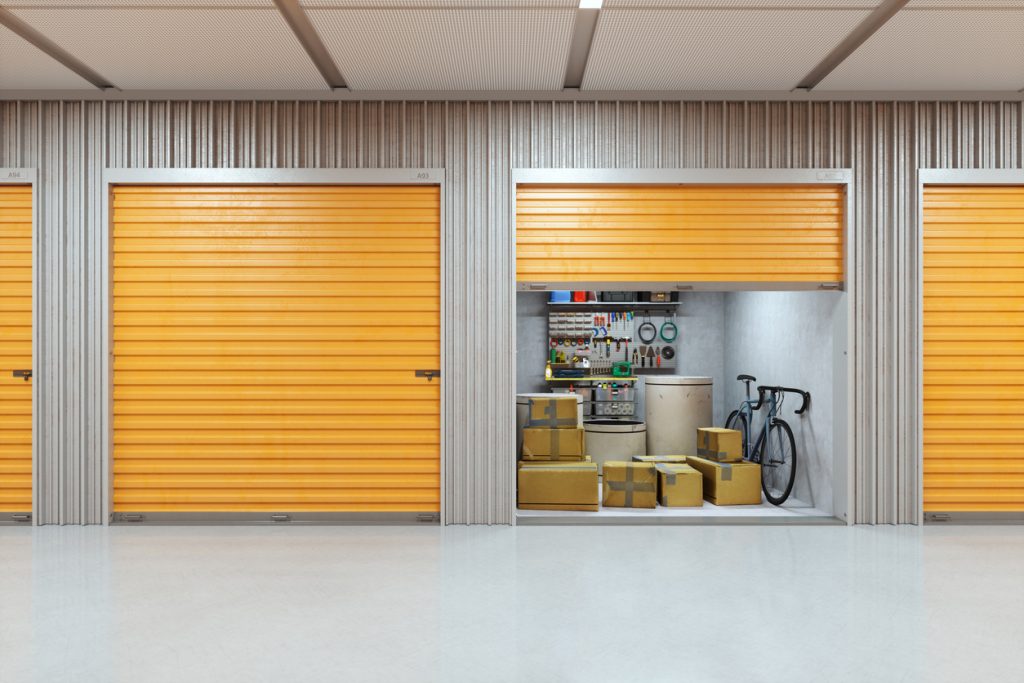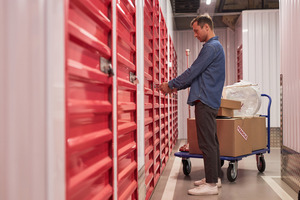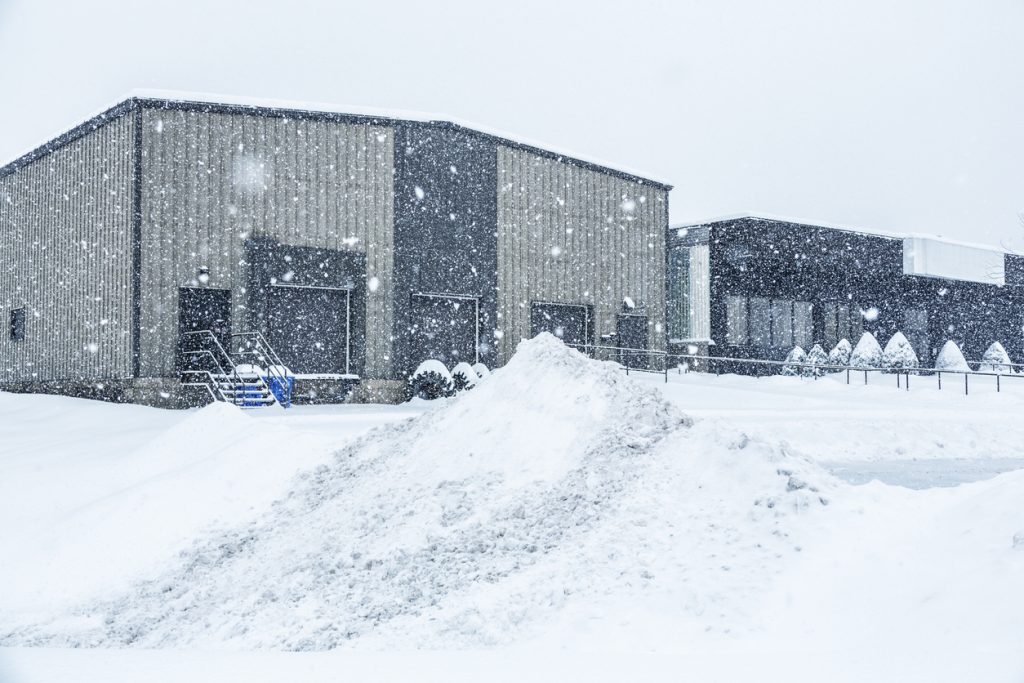In this article, we’ll be highlighting 10 potential fire hazards that you may not be aware could be in your storage unit. Keep your items safe by being aware of these items!
Many people are unaware of just how much value their storage unit holds when adding up the replacement value of each item stored inside – which is why an accurate storage insurance policy is so important.
Read about these 12 items to never store in your self-storage unit next!
Make sure you don’t accidentally put those items at risk with these unexpected fire hazards…
1. Lawn Mower
It’s not uncommon for people to place their lawn mower in your storage unit when not in use, particularly during colder months or when moving/renovating and a tidy lawn isn’t a top priority!
However, the gasoline and oil left inside the mower can pose a significant fire risk. Gasoline vapours can ignite from a mere spark or if the temperature rises too much, making a lawn mower more than just a space occupier in your storage unit.
Keep your storage unit and its contents safe by emptying your mower completely before storing it.
2. Deodorants
Aerosol cans, such as those used for deodorants, are pressurised and can become explosive in high heat or when exposed to direct sunlight. What’s more, if these cans are punctured or heated, they can release their contents rapidly, causing potential injury or igniting a larger fire.
It can be easy to forget a stray can or two in your boxes when packing, but it’s important to take care not to leave this potentially flammable item in an unsafe position.
3. Paint
Cans of paint and solvents like paint thinners are filled with volatile organic compounds (VOCs), which are highly flammable. Improper storage, especially in units without climate control, can lead to the release of these flammable vapours, posing a significant fire hazard.
Storage is the ideal choice when renovating a home, but don’t be tempted to use your unit to store your painting and decorating equipment without taking proper precautions first!
4. Cleaning Products
Cleaning agents often contain chemicals that can react dangerously under certain conditions or when mixed inadvertently.
For instance, mixing ammonia and bleach, even in residual amounts, can generate toxic gases that are not only harmful but can also be explosive. If you’re planning to store any cleaning products in your storage unit, check they fall within your terms of contract first and ensure you’re storing them correctly.
5. Paperwork
Paper materials, including documents, books, and cardboard, can easily ignite and sustain a fire. The risk is exacerbated if the storage space is cluttered, providing ample fuel for a fire to grow and spread rapidly.
While paperwork isn’t flammable on its own, it’s important to consider how vital those items are to you. If the paper documents are irreplaceable in the event of them being lost in a fire or flood, it may be wise to reconsider keeping them in your storage unit altogether.
6. Electronic Appliances
Storing old or malfunctioning electronic appliances is risky due to potential overheating and electrical faults. Devices with deteriorating batteries, such as remotes, can overheat and catch fire, posing a significant hazard.
Empty the batteries out of any devices you plan to store long-term, and make sure you package and protect any other electronic devices to prevent any malfunctions when you come to use them in the future.

7. Propane Tanks
Propane tanks, commonly used with barbecue grills and camping equipment, are extremely dangerous to store in enclosed spaces. Even a minor leak can lead to a significant explosion if the propane comes into contact with an ignition source.
If you’re planning to use your storage unit to store items you don’t use often, such as camping and outdoors equipment, take care that you haven’t accidentally included an old propane stove in your belongings.
8. Old Clothing or Upholstered Furniture
Fabrics and upholstery can catch fire quickly and retain heat, fueling a fire to grow and spread. These materials can be particularly dangerous if they are old, worn, or not stored properly.
Think of your storage unit as a complete picture: what items do you have stored inside that could ignite or exacerbate a fire? How can you store your items to minimise this risk?
9. Flammable Liquids
Besides paint, storing flammable liquids like motor oil, turpentine, or additional gasoline poses a fire risk. The vapours from these liquids can ignite quickly, leading to a rapid spread of fire throughout the storage unit.
10. Christmas Decorations
Seasonal decorations, especially older or electrical ones, can be a fire hazard. Items made from flammable materials or that are electrical in nature should be stored with care to prevent any risk of ignition.
This is an especially valid point for anyone using a storage unit for seasonal business purposes (for example, a storage unit stocked full of Christmas decorations should not be used in conjunction with any potentially flammable or combustible goods!).
Keeping Flammable Items Out
Not sure if your self-storage unit is safe and compliant with your facility’s terms and conditions! The best way to be sure is to simply ask them. As this article demonstrates, it can be easy to overlook commonplace items that can easily put your items at risk, so chat with your storage facility about what you can do to make your unit as safe as possible.
How To Keep Your Items Safe In Self-Storage
Make sure you’ve chosen a safe and secure self-storage facility in order to keep your items as safe as possible when out of sight.
Moreover, invest in an affordable self-storage insurance policy to cover the financial value of your belongings should they be stolen, damaged, lost, or more.








